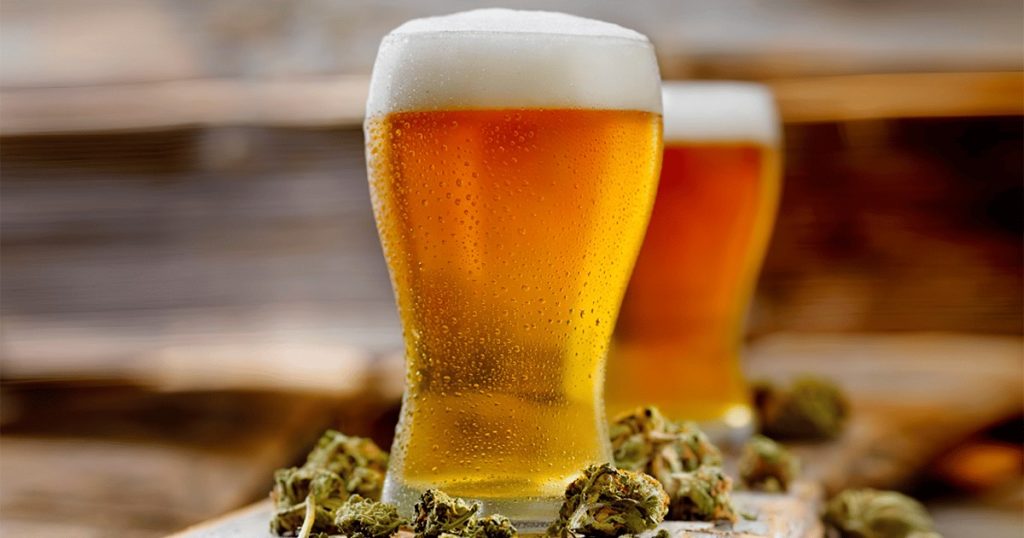As global perception surrounding cannabis plants has been changing rapidly over the past decade and overall regulation is decreasing, hemp has perhaps been the most readily accepted cannabis product.
In 2018, the Farm Bill was signed into law in the United States. This piece of legislation, which defined hemp as a cannabis plant matter derivative with less than 0.3% of THC, removed hemp from the classification of marijuana as per the Controlled Substances Act (CSA). While the passing and implementation of the Farm Bill was a much-needed step in the right direction, it was severely delayed.
Concrete evidence of hemp cultivation dates back to at least 4 000 BCE in China. Additionally, the paper used in conjunction with Gutenberg’s printing press is known to have been made using hemp fibers. Perhaps the most ironic entry in the history book of hemp (considering America’s recent demonization of cannabis) is the fact that the final two drafts of the American Declaration of Independence were created using hemp paper.
Below, we’ve outlined some of the industries hemp is revolutionizing.
Hemp Fiber – An Age-Old Industry
Considering its established history, it should come as no surprise that hemp textiles are experiencing an explosion with the easing of cannabis regulations. According to Global Market Insights Inc., the global organic hemp market will exceed $360 million in value by the year 2030.
Hemp fibers have a wide range of uses, including:
- Ropes and cords
- Paper and parchment
- Shoes and bio leather
- Building materials
- Clothes and textiles
The reason hemp is such a desirable plant material for these purposes is because of its natural attributes. Hemp fibers are strong (3 times the strength of cotton), relatively cheap, weather and mold-resistant, versatile, and environmentally friendly. German high-performance car manufacturer, Porsche, has even created a car with certain components made from hemp fibers.

Hemp Fuel – An Environmentally-Friendly Solution To Growing Energy Demands
Researchers at the University of Connecticut found that hemp oil can be efficiently converted to biodiesel, with a conversion rate of 97%. Furthermore, scientists at the University of Kentucky (UK) have estimated that growing hemp for biofuel will generate returns of over $1 500 per hectare. These scientists have also lauded hemp’s yield per hectare, which surpasses other biodiesel candidates such as sorghum and switchgrass. Dr. Jian Shi from the UK notes that outside of hemp seed oil, the actual hemp plant can produce ethanol and methanol for bioenergy.
Hemp Protein And Beer – A Sustainable Way To Achieve Your Macros And Relax
Due to the varied uses of different components of the hemp plant, hemp protein is generally considered to be environmentally sustainable.
Hemp protein powder is created by crushing and grinding down hemp seeds into fine powder. In terms of performance, the average 30-gram serving of hemp protein powder yields about 12-15 grams of protein. Moreover, hemp protein contains healthy fats such as omega-3 and omega-6, the former of which is difficult to find outside of fish protein. Alongside these fatty acids, hemp protein also contains vitamins and minerals such as vitamin E, iron, magnesium, calcium, and manganese.
Another factor that makes hemp protein potentially superior to other protein supplements is that it contains all nine essential amino acids that humans cannot create but have to ingest. Many critics of non-animal protein often lament that plant proteins aren’t as bioavailable and digestible. Hemp protein stands in contrast to this, with 91-98% of digestible protein.
Joining in on the hemp craze are the beer and beer-brewing industries. Researchers in Switzerland have replaced hops with hemp flowers in the beer brewing process with no taste differential. Even more, organizations such as Southern Fields Brewing have debuted hemp beers at the 850 Hemp Summit.
An Even Greater Case For Legalization And De-Regulation
The benefits of cannabis de-regulation clearly extend beyond medicinal and recreational marijuana. The industries that are turning to hemp for increased performance, better costs, and a greener footprint will create jobs and boost economies worldwide.

Enjoyed that first hit? Come chill with us every week at the Friday Sesh for a freshly packed bowl of the week’s best cannabis news!
















